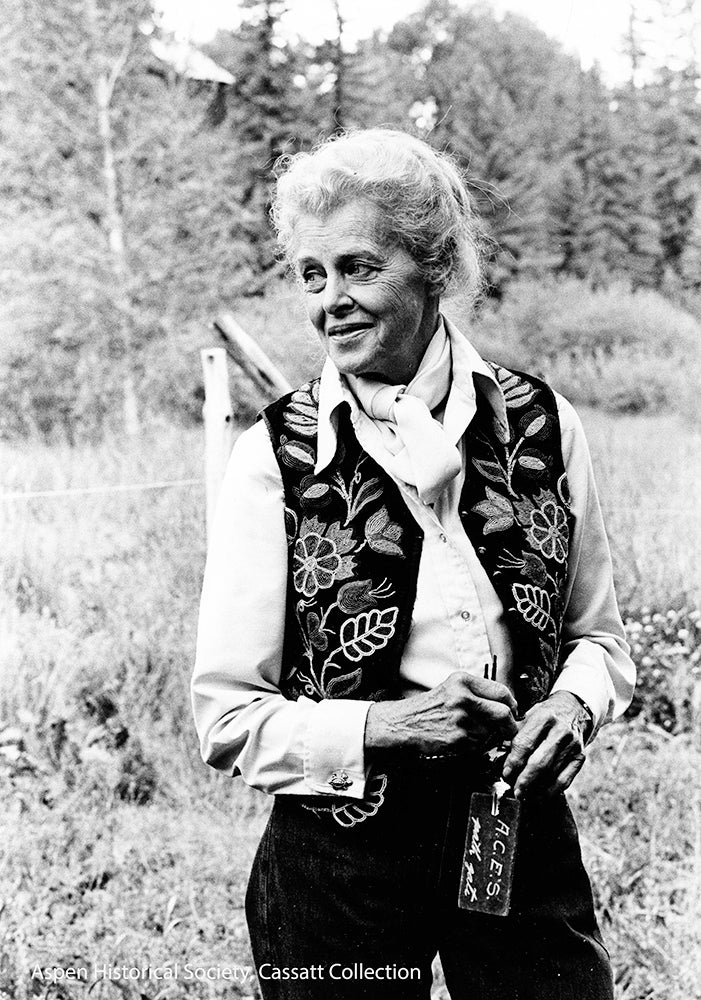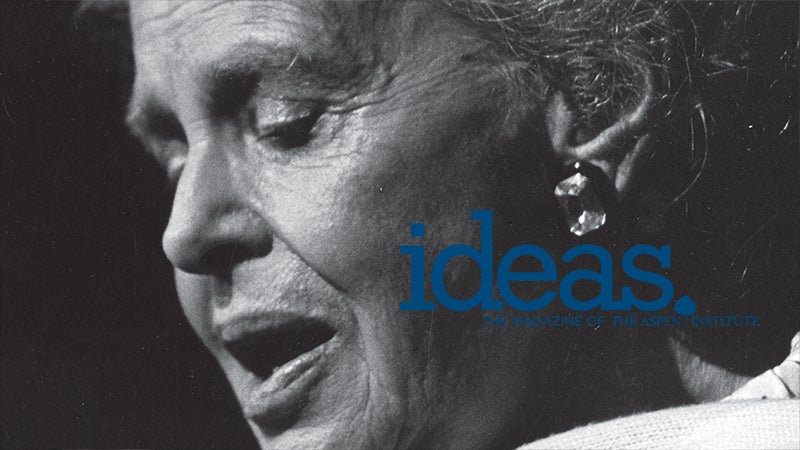Walter and Elizabeth Paepcke
Walter and Elizabeth Paepcke’s shared passion for the power of ideas, the arts, and the natural beauty of Aspen brought the “Aspen Idea” to life. Together, they helped transform a quiet silver-mining town into a haven for cultural and intellectual enrichment–an enduring legacy of fostering dialogue and leadership.

Architects of the Aspen Idea
Walter Paepcke (1896-1960) was born and educated in Chicago and began his career working for his immigrant father’s company, Chicago Mill and Lumber. Walter eventually took the reins, shifted the company’s focus toward sustainable packaging, and created the Container Corporation of America (CCA) in 1926. Under his leadership, CCA became known in the industry for its quality products and innovative business model. But what set CCA apart wasn’t just its industrial success—it was the company’s integration of design and modern art into its identity, signaling his deep belief in the fusion of commerce and culture.
Elizabeth—known affectionately as “Pussy”—matched Walter’s intellect and drive with her artistic passion and unshakable will. Educated at the University of Chicago’s Laboratory School and then Foxcroft School in Virginia, she studied painting and interior design at the Art Institute of Chicago. Married in 1922, the couple became prominent figures in Chicago’s vibrant cultural circles. Elizabeth supported and was involved with the Art Institute of Chicago, the Goodman Theatre, the Lyric Opera, and the Chicago Symphony Orchestra. A modern art enthusiast, she collected works by Pablo Picasso, Alexander Calder, Marc Chagall, Paul Klee, and Bauhaus visionary Herbert Bayer, who would later play a pivotal role in shaping Aspen’s visual and architectural identity.
Discovering Aspen by accident in 1939, Elizabeth remarked of her impromptu ski outing to Aspen Mountain: “At the top, we halted in frozen admiration. We were alone as though the world had just been created and we its first inhabitants.” It took six years before she could lure Walter to return to Aspen, and together they imagined a contemporary version of the Chautauqua tradition, where learning, culture, and community come together. In Walter’s words, “The Aspen Idea was to create a place, for man’s complete life … where he can profit by healthy, physical recreation, with facilities at hand for his enjoyment of art, music, and education.”
In collaboration with their friend, University of Chicago chancellor Robert Maynard Hutchins and an organizing committee of distinguished international thinkers and public servants, the Paepckes laid out the foundations for the Aspen Institute of Humanistic Studies in late 1949–an attempt to revive the spirit of humanism in the aftermath of World War II.
The Paepckes’ influence extended far beyond the Aspen Institute. Walter co-founded the Aspen Skiing Company in 1946 and hosted the first international skiing competition in the United States in 1950, establishing Aspen’s reputation as a world-class ski destination. The Paepckes also helped launch the Aspen Music Festival and School (still active) and the International Design Conference (which ran until 2005).
After Walter’s death in 1960, Elizabeth continued to shape Aspen’s evolution with fierce dedication, founding the Aspen Center for Environmental Studies (ACES) at Hallam Lake in 1968 and remaining deeply engaged in the life of the town. Together, Walter and Elizabeth Paepcke transformed a forgotten mining town into a globally recognized center for ideas, innovation, and inspiration–a place of intellectual and physical activity ideally in harmony with the glories of the natural environment. Their legacy—the Aspen Idea—lives on in every conversation sparked, symphony played, trail skied, and moment of quiet reflection set against the backdrop of Aspen’s Rockies.
“Aspen had everything… to add to leisure, to the renewal of the inner spirit. It was the perfect setting for music, art, education — all the things that make life worth living.”
Elizabeth Paepcke, Co-founder, Aspen Institute



